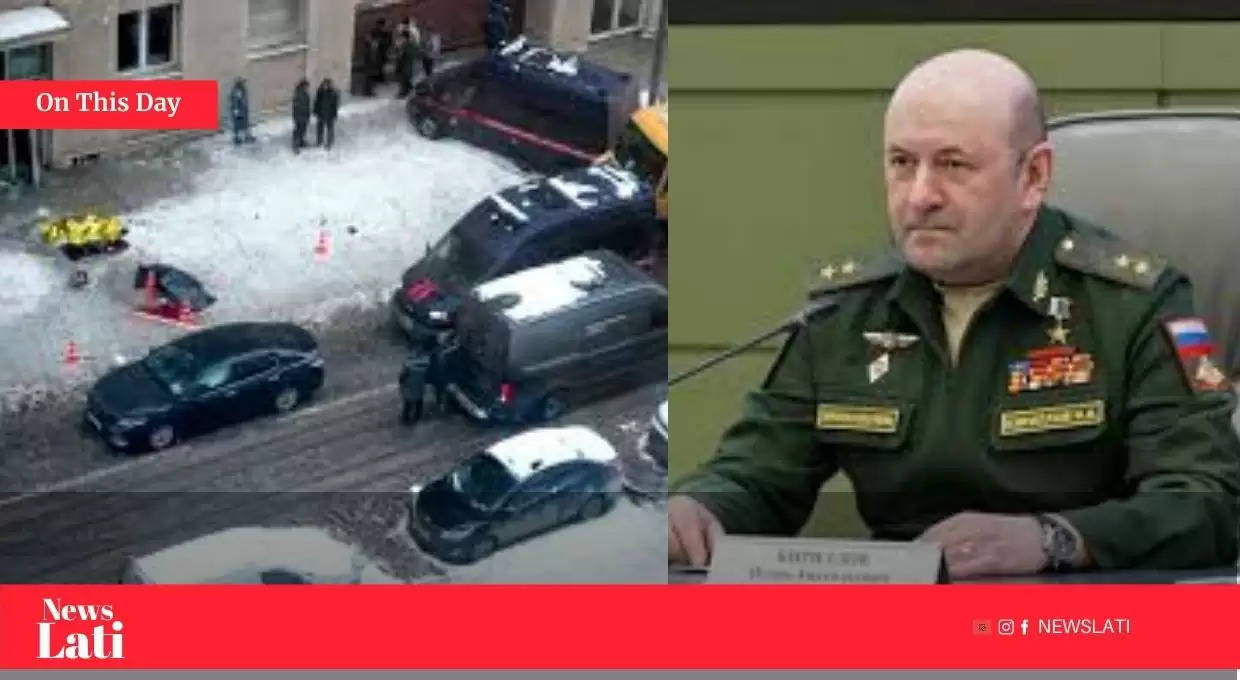Russian General, Exposer of U.S.-Backed Bio-Labs in Ukraine, Assassinated in Moscow

-
Russian Lt. Gen. Igor Kirillov, known for his claims about U.S.-funded bio-labs in Ukraine, assassinated in Moscow.
-
Investigation points towards NATO and Ukrainian involvement, according to Russian officials.
-
Russia promises retaliation amidst heightened tensions.
In a shocking development, Russian Lieutenant General Igor Kirillov, who had publicly accused the U.S. and Ukraine of operating clandestine biological weapons laboratories, was assassinated in Moscow. The attack, which involved a bomb hidden in an electric scooter, took place near his residence in southeast Moscow, marking a bold and violent escalation in the ongoing conflict between Russia, Ukraine, and their respective allies.
Kirillov, who headed Russia's Nuclear, Biological, and Chemical Defense Forces, was a prominent figure known for his assertions at international forums, including the UN, where he alleged that the U.S. was funding biolabs in Ukraine for potentially nefarious purposes. His assassination has sparked immediate speculation and blame, with Russian authorities swiftly pointing fingers at NATO and Ukraine.
Following the assassination, the Russian government has not only condemned the act but has also hinted at imminent retaliation. "We will respond robustly to this act of terrorism," stated Dmitry Medvedev, Deputy Chairman of Russia's Security Council, indicating a potential escalation in hostilities. The Kremlin's response suggests a broadening of the conflict's scope, moving from the battlefields of Ukraine into the heart of Moscow with targeted assassinations.
The method of attack, using a remotely detonated bomb, is reminiscent of several high-profile incidents where similar tactics were employed against Russian officials or pro-Russian figures. An Uzbek national has been detained in connection with the attack, with Russian security services claiming he was recruited by Ukrainian intelligence, adding a layer of international intrigue to the incident.
This assassination has ignited a firestorm of debate about the ethics and legality of targeting military leaders in conflicts, especially when done on foreign soil. The international community is watching closely as the repercussions could reshape the dynamics of the ongoing war in Ukraine. Concerns are mounting about the potential for a cycle of retaliatory strikes that could further destabilize the region or lead to broader international involvement.
The incident, while not yet officially linked by forensic evidence to any group, has already been leveraged by Russian state media to rally domestic support and justify potential military or diplomatic moves against Ukraine and its allies. This event underscores the volatile nature of the current geopolitical landscape, where assassinations can significantly influence international relations and military strategies.
